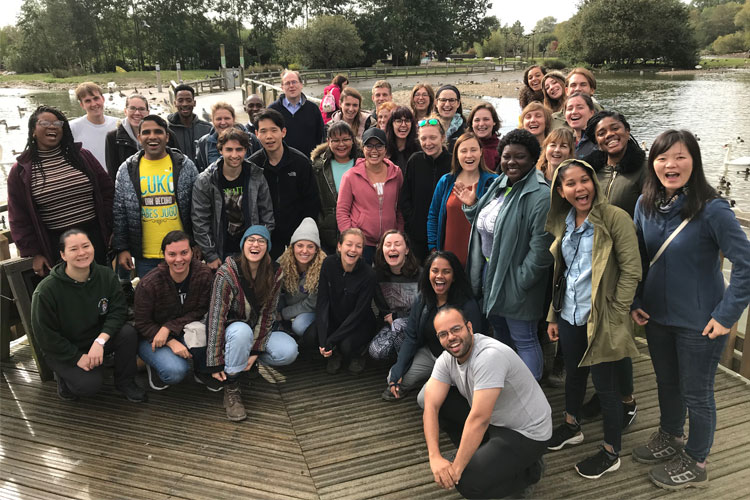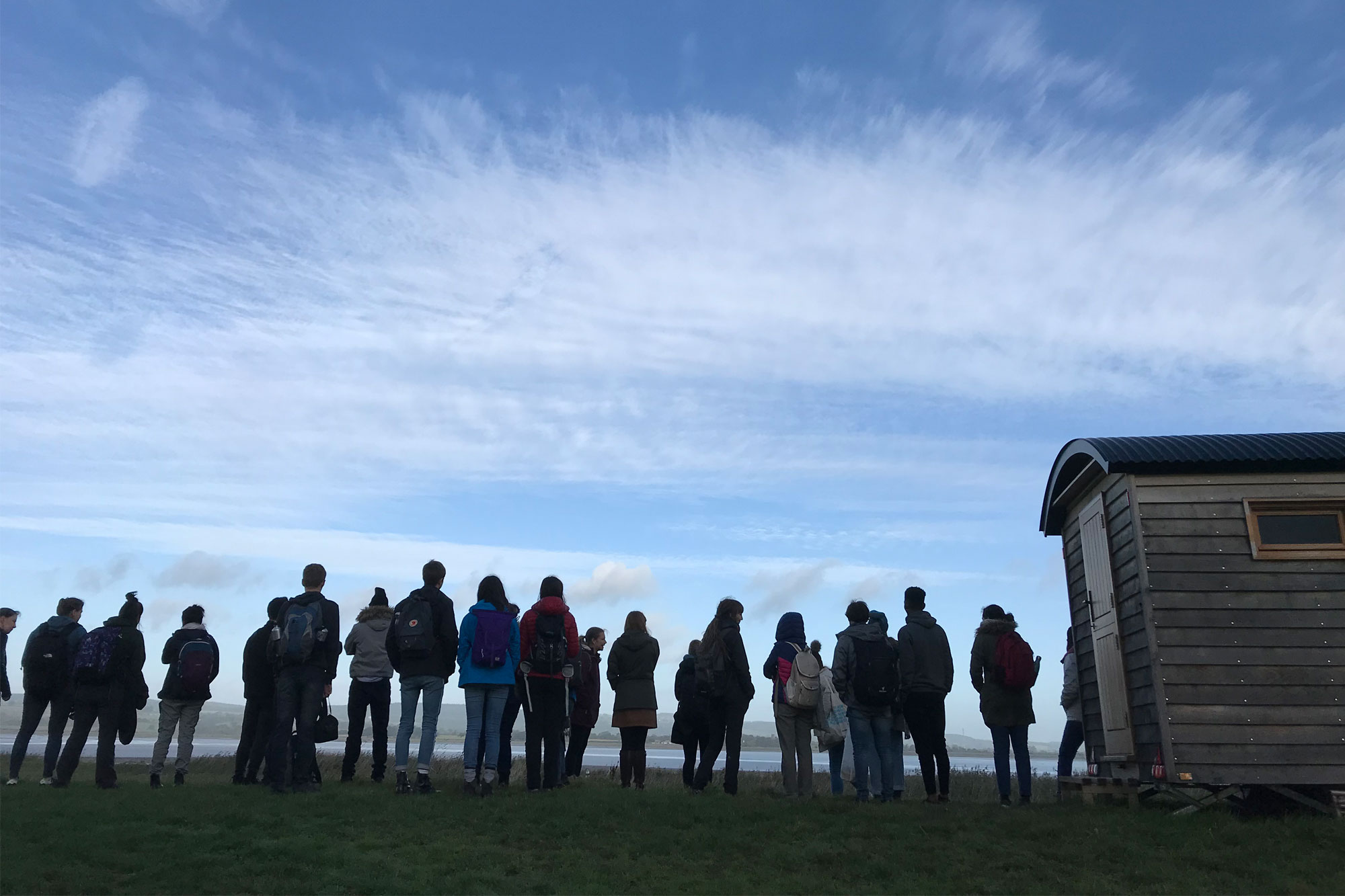In early October, Master’s students across the taught programmes offered by the Durrell Institute of Conservation and Ecology (DICE) visited the Wildfowl and Wetland Trust‘s Slimbridge Wetland Centre as part of the Multidisciplinary Perspectives in Conservation module, the first of many field trips that form the postgraduate experience. The excursion provides the students with a great opportunity to immerse themselves in the day-to-day management of the centre, its conservation efforts and its contingency strategies.
Given that the programmes commence merely two weeks before the trip, it also furnishes the cohort with a chance to get to know each other better, make new acquaintances and learn about each other’s different cultures (given that the School of Anthropology and Conservation attracts such an internationally diverse field of students and researchers).
The module’s main aim is to provide students with a broad understanding of different natural and social science approaches to conservation, introducing a variety of multidisciplinary academic backgrounds that allow for the development of professional skills in biodiversity management and practical problem-solving through many real-world scenarios. Ben Galea, who is studying for an MSc in Conservation Biology, provides an account of the field trip:
“We made our way to Slimbridge without hassle, as the School organised all transport logistics. Our accommodation, the Wild Goose Lodge, was as cosy and comfortable as we could have hoped for. Better yet, it was a two minute walk from the Tudor Arms, a glorious 18th Century hostelry which we visited every evening, and five minutes away from WWT Slimbridge, our centre of activity for the duration of the field trip.
“Our days were divided between taught lectures, group exercises, informal discussions and, best of all, tours of the centre’s grounds and around its birding sites. The centre hosts a rich diversity of bird species from all corners of the earth, mixed between those which are captive and others which are wild. One highlight was definitely being able to feed the many birds walking side-by-side next to us!

“The main theme of the trip was the understanding of wildlife disease and health, particularly Avian Influenza (bird flu). We learned about different forms of wildlife disease and transmission, using various case studies to better understand the complexity and magnitude of the subject. We were also educated about the work done at WWT to care for its birds and control measures for potential disease outbreaks. We concluded the trip by developing our own contingency/management plan for a hypothetical outbreak of Avian Influenza at the centre, presenting and discussing our ideas with the rest of the class.
“All through our walks around the enclosures, bird watching, bettering our understanding of wildlife disease, and those lively social evenings at The Tudor Arms, our trip to Slimbridge turned out to be a truly memorable one which will resonate for many years beyond the course.”

